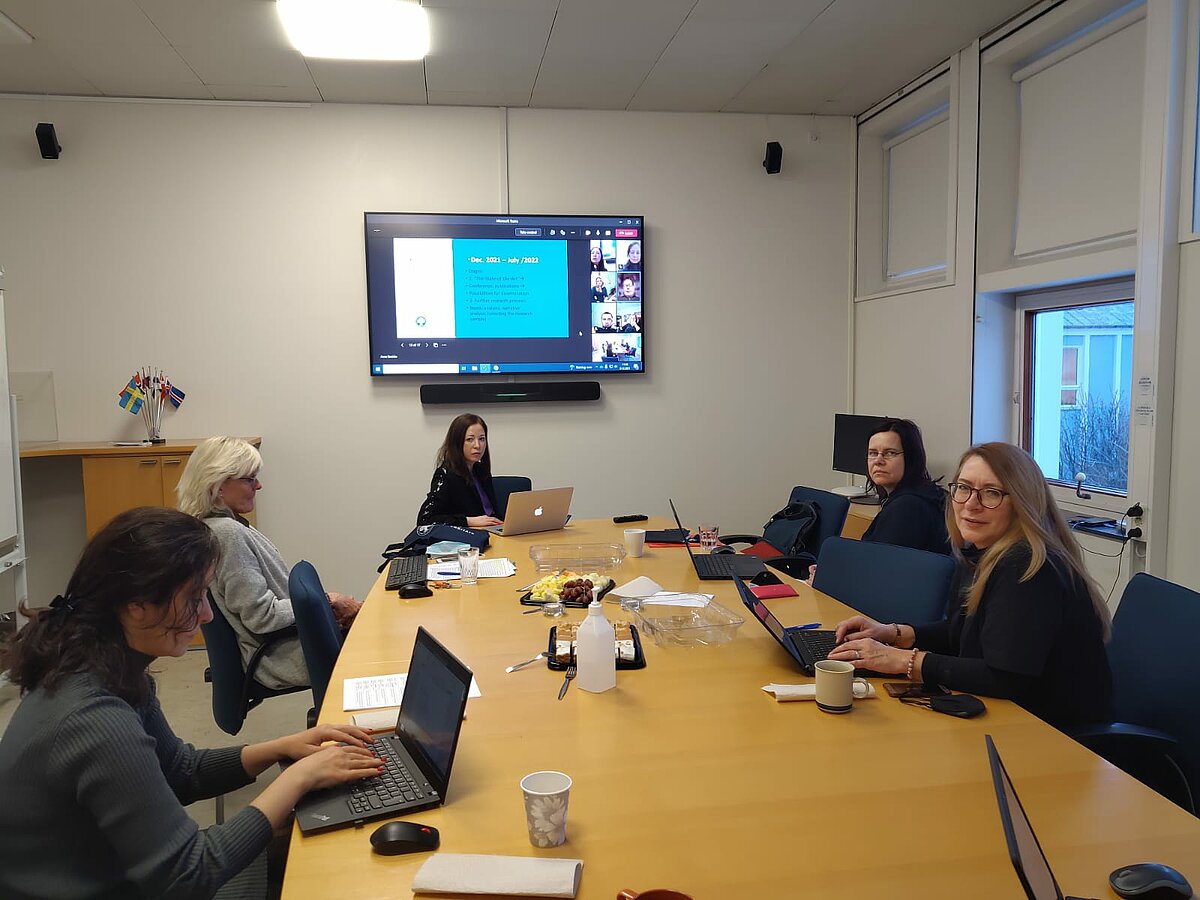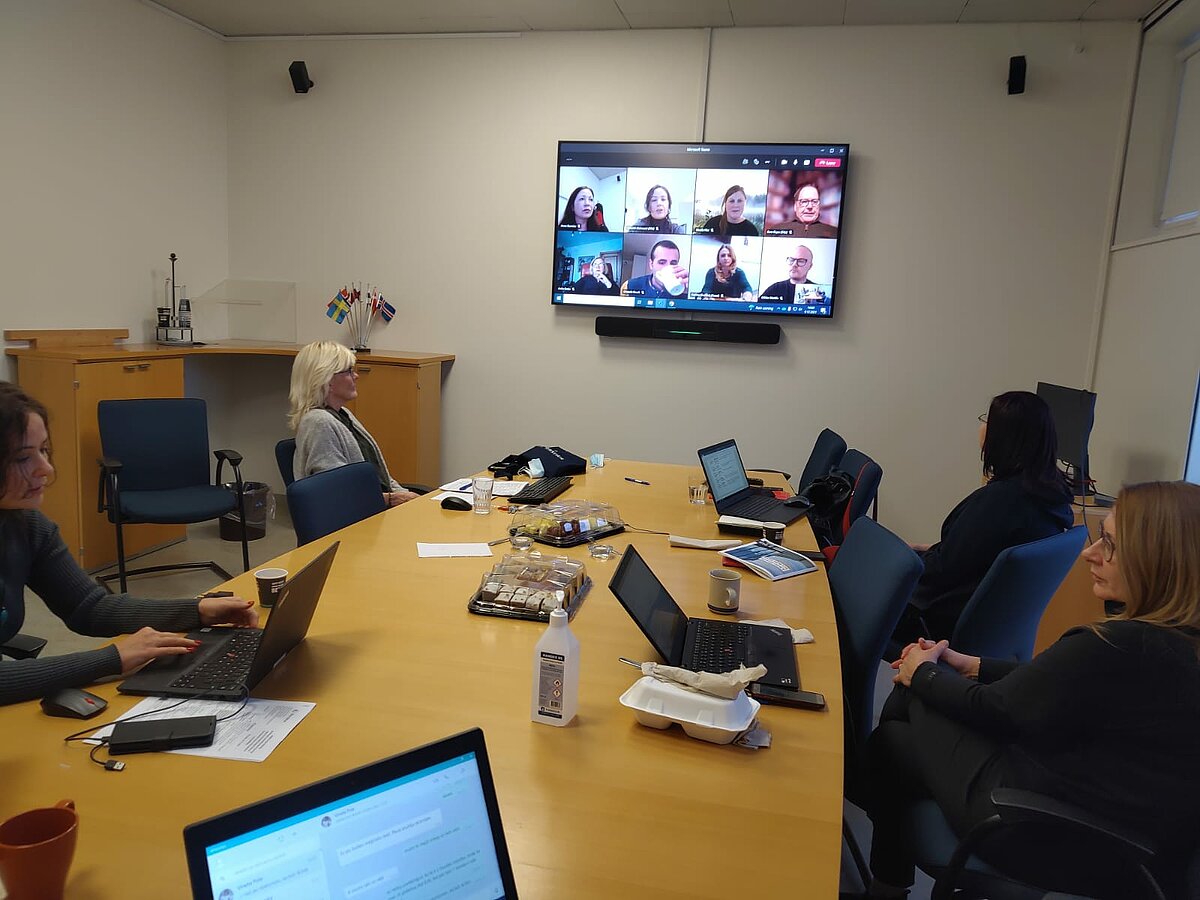
In December, 9 th – 11th, 2021 the University of Iceland hosted the 2nd project meeting “Multilingual and Multicultural Learning Space for the Well-Being of Seniors from Remote Areas in the Pandemic Crisis (MAMA)” within which the topical issues in the project implementation: progress, expected outcomes and further steps, developing project timeline, visual identity, dissemination were discussed.
Following the most recent developments in project implementation, the hybrid mode for holding the meeting was chosen. The University of Iceland represented by professor Hanna Ragnarsdóttir welcomed the team in the school of Education at the University of Iceland - a state university, situated in the heart of Reykjavík, the capital of Iceland. The University is one of the largest employers in the country. It has 15.258 students enrolled, the university employs around 1.714 permanent staff and around 3.729 external lecturers and temporary staff.
The Latvian Consortium coordinators - the University of Latvia – represented by professor Indra Odiņa, professor Ilze Miķelsone, assist. professor Anna Stavicka and researcher Anita Berķe, international assistant Mustafa Kavak and partners affiliated with the Liepaja University represented by assoc. professor Lāsma Latsone and assoc. professor Jana Grava launched the meeting in the premises of the School of Education. The School of Education is a leading institution in education studies and well-being in Iceland. It has an important sociological role regarding the education of teachers, social educators, leisure professionals, sports and health scientists as well as pedagogy and education studies. The School of Education is divided into four faculties:
- Faculty of Education and Diversity,
- Faculty of Education and Pedagogy,
- Faculty of Health Promotion, Sport and Leisure Studies,
- Faculty of Subject Teacher Education.
The partner from Kedainiai Vocational Educational Training Centre, Lithuania, project manager Aurima Bajorūnienė reported on the state of the art in Lithuania: what is there for senior citizens and how we can use it for needs analysis.
Indra Odiņa and Anna Stavicka outlined the research trends and perspectives within senior support provision in Latvia.
Professor Eero Ropo and doctoral researcher Golaleh Makrooni (Tampere University, Finland) contributed to the development of the theoretical and methodological project framework.
Due to the interest in the project theme, the network was expanded through participation of the external experts. The external expert from Finland Mikko Mattila (Tampere Summer University, Finland) provided the insight into the experience of Summer University in life-long learning initiatives for seniors. Pilvi Nissilä and Tarja Jarvinen (Tampere City, Finland) introduced the Tampere City experience working with seniors.
The outcome of the project meeting is finalizing the theoretical and methodological project framework and distribution of the tasks for further project implementation. The narrative analysis as an approach to research design within the mixed-method research was chosen for the further research stage. The dissemination of the interim project results will be implemented in the framework of the 80th International Scientific conference of the University of Latvia in the conference session “Teacher Professionalism and Education for the Future”.
Project Consortium:
University of Latvia (Latvia) – the Coordinating institution
Tampere University (Finland)
University of Iceland (Island)
Kedainiai Vocational Educational Training Centre (Lithuania)
Liepaja University (Latvia)
Help To Life International (Sweden)


 Academic Centre
Academic Centre